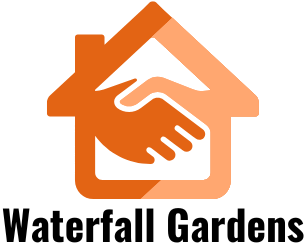In the wild world of real estate, housing bubbles can feel like a rollercoaster ride—thrilling at first but often leaving folks dizzy and disoriented. When prices soar to dizzying heights, it’s easy to get swept up in the excitement. But what happens when that bubble bursts? Spoiler alert: it’s not as fun as a trip to Disneyland.
Table of Contents
ToggleOverview of Housing Bubble Effects
Housing bubbles create significant effects on the economy and individual homeowners. Rising property prices often lead buyers to purchase homes beyond their means, expecting values to increase indefinitely. When these bubbles burst, many homeowners experience underwater mortgages, where outstanding loans surpass the property’s market value.
Job losses can also follow a housing bubble collapse. Individuals may struggle to make mortgage payments, leading to an increase in foreclosures. Foreclosed homes contribute to a surplus of inventory, which further drives prices down. Homeowner equity diminishes as property values drop, reducing wealth in affected communities.
Investors often react sharply to a bursting housing bubble. They may retreat from real estate, shifting their focus to other markets or asset classes. This pullback creates a ripple effect, reducing funds available for new housing developments and renovations. As a result, neighborhoods may experience decline due to a lack of investment and maintenance.
Moreover, the broader economy can feel the impact. Consumer confidence wanes as people reassess their financial situations. Spending tends to decrease, particularly on goods and services that rely on discretionary income. The resulting economic slowdown might lead to further job losses, perpetuating a cycle of financial insecurity.
Government policies may shift in response to a housing bubble’s effects. Regulatory measures often aim to stabilize the market and protect consumers. In time, these interventions can help restore balance, but recovery typically requires patience and strategic planning. Ultimately, the effects of a housing bubble extend far beyond individual homeowners, influencing the entire economic landscape.
Economic Impacts
Housing bubbles significantly influence both the real estate market and the broader economy. These effects become apparent in both short-term market fluctuations and long-term economic shifts.
Short-Term Effects on the Market
Rapidly rising home prices create a sense of urgency among buyers, often leading them to purchase properties beyond their financial capabilities. Overextended borrowers become vulnerable to economic shifts, especially when the bubble bursts. Increased demand can initially drive up prices, but the resulting market instability may lead to widespread foreclosures. Foreclosures contribute to oversupply in the market, pushing prices further down. This cycle decreases consumer confidence, resulting in reduced spending across various sectors.
Long-Term Consequences
After a housing bubble collapses, the long-term effects can be profound. Homeowners may face reduced equity, impacting their ability to reinvest in their properties or leverage personal wealth. Neighborhoods experience declines as investors opt out of real estate markets, leading to deteriorating property conditions. Economic recovery requires time, often coupled with strategic government policies aimed at stabilizing the market. Job loss can persist in affected regions, creating lasting impacts on community financial health. Thus, the ramifications of a housing bubble stretch beyond immediate housing concerns, influencing the overall economic landscape.
Social Implications
Housing bubbles influence society in several significant ways, particularly impacting homeownership and rental markets.
Impact on Homeownership Rates
Homeownership rates often decline during housing bubbles. When prices rise rapidly, many potential buyers find homes unaffordable. Consequently, higher costs can push first-time buyers out of the market. Existing homeowners might feel incentivized to stay put, fearing new purchases could lead to financial strain. As a result, the ability to move or downsize diminishes. Data from the U.S. Census Bureau shows that homeownership rates dropped to 65.4% in 2021, a reflection of these challenging market dynamics. Such changes can stifle community growth and disrupt neighborhood stability over time.
Effects on Renters
Renters face numerous challenges during housing bubbles. Rapidly increasing property values lead to higher rental rates as landlords seek to maximize profits. Many renters find themselves paying a larger percentage of their income on housing. This financial strain often forces individuals and families to relocate or switch to less desirable areas. National statistics indicate that rent prices rose 15% in 2021 alone. Such increases can create instability in communities, prompting renters to search for affordable housing alternatives. With fewer affordable options available, renters experience heightened uncertainty about their living situations.
Psychological Effects on Consumers
Housing bubbles induce significant psychological effects on consumers. These effects manifest as fear and uncertainty regarding real estate investments, impacting decision-making.
Fear and Uncertainty
Fear surrounds potential economic instability when housing prices rise rapidly. Many consumers experience anxiety about job security, leading to hesitance in purchasing homes. Uncertainty amplifies concerns about the sustainability of rising prices, creating a reluctance to invest. This distrust can result in a wait-and-see approach, further cooling market activity. Many buyers consider the possibility of market downturns, adopting a cautious mindset. Economic reports suggest that this atmosphere of fear can deter first-time homebuyers, ultimately diminishing homeownership rates.
Behavioral Changes in Home Buying
Behavioral changes significantly emerge during housing bubbles. Buyers often rush into purchase decisions due to the perceived urgency created by rising prices. Some individuals overextend their budgets, ignoring financial realities in hopes of securing properties before prices escalate further. This urgency may lead to ill-considered purchases, leaving buyers vulnerable during market corrections. Many consumers gravitate towards more competitive bids, requiring them to make quicker offers. Consequently, these behaviors contribute to the housing market’s volatility, amplifying the effects of bubbles on individual financial stability.
The effects of housing bubbles ripple through the economy and individual lives in profound ways. As excitement over rising prices gives way to disillusionment, the consequences become evident. Homeowners face financial strain while communities experience instability.
The psychological toll on buyers can lead to hesitance and poor decision-making, further complicating market dynamics. Understanding these multifaceted impacts is crucial for navigating the complexities of real estate.
Strategic planning and government intervention are essential for recovery, but patience is key. Ultimately, recognizing the signs of a housing bubble can empower consumers and investors to make informed decisions that safeguard their financial futures.



